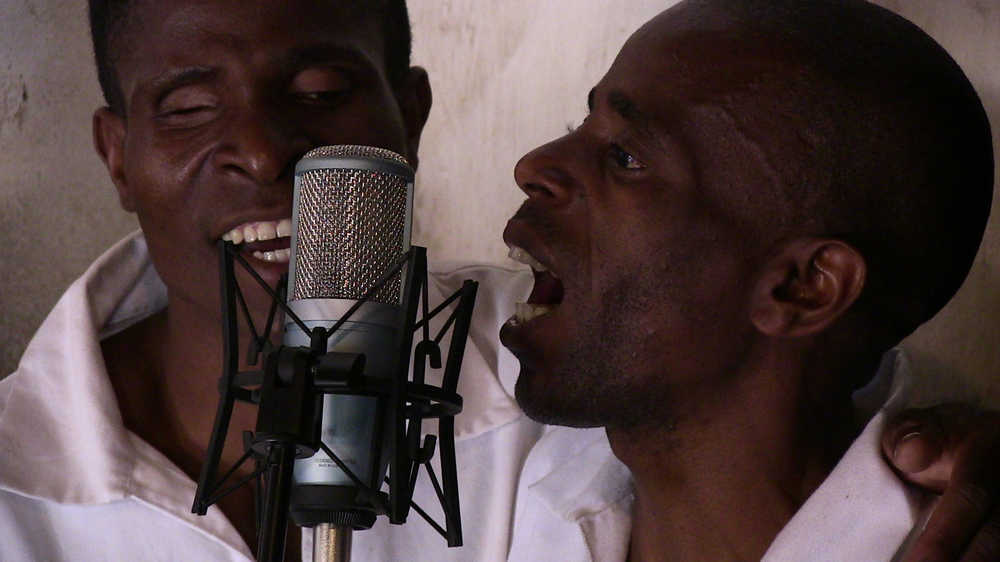JOHANNESBURG — The gentle chorus of maximum security prisoners sung over simple guitar chords has earned Malawians their first Grammy nomination, but it took nearly 10 days for them to find out.
“I Have No Everything Here” is a 20-track collection of sometimes melancholic songs performed by the inmates of Malawi’s overcrowded Zomba prison, documenting life on both sides of the crumbling red brick walls.
The track “Listen to Me” is a warning to young women to stay out of trouble. Other tracks include “Prison of Sinners,” “Last Wishes” and the more upbeat “When They See Me Dance.” Eighteen of the 20 tracks are sung in the Chichewa language.
The Zomba Prison Project has been nominated for best world music album, on the heels of previous winners and now fellow nominees such as South Africa’s Ladysmith Black Mambazo and Beninese singer Angelique Kidjo.
Grammy recognition will not lead to a world-touring career for the Zomba Prison Project, though. Many performers are serving life sentences in the prison’s sandy yard and cramped quarters.
Cut off from the world, the inmates heard about their nomination via charity workers and prison officials, album producer Ian Brennan said in a telephone interview from Paris.
Brennan, who has built a career as a producer determined to promote new international music, said he was nevertheless surprised that his “massive, money-losing labor of love” has garnered international prestige.
Born in Oakland, California, Brennan has also worked in psychiatric facilities for over 20 years, becoming an expert in violence prevention. Music is a tool for empathy, he said.
Brennan struck a deal with prison officials in Malawi that he would give workshops on conflict prevention to inmates while getting the chance to record their haunting hymns and traditional songs. The prisoners were paid in money, clothes and other commissary items, all handled by the guards.
Brennan used his own funds to pay for the album, which was released by Six Degrees, a San Francisco record company known for its international catalog. He recorded 60 hours of music in the prison yard in August 2013, competing with the grinding from the prison’s carpentry classes.
The men’s side of the prison already had a relatively successful choir that toured other prisons with donated instruments, Brennan said. The women prisoners at Zomba, only a few dozen out of thousands, made do with overturned buckets and a few traditional drums. The women were apprehensive about performing until inmate Gladis Zinamo stepped to the microphone.
“Share with the earth your happiness,” she sang, and the first words of the album track “Don’t Hate Me” created a domino effect of other women coming forward to sing, said Brennan. Women inmates wound up being the singers for more than half of the album.
Grammy-winning Brennan has also produced Rwanda’s The Good Ones, South Sudanese band Wayo: Trance Percussion Masters and the Malawi Mouse Boys, a gospel group that once made a living selling mice on sticks as roadside snacks.

